Pete Hegseth under scrutiny for texting strike details as fallout grows
There are increasing calls for the Defence Secretary to resign, amid claims he flouted longstanding security procedures for handling sensitive military information.
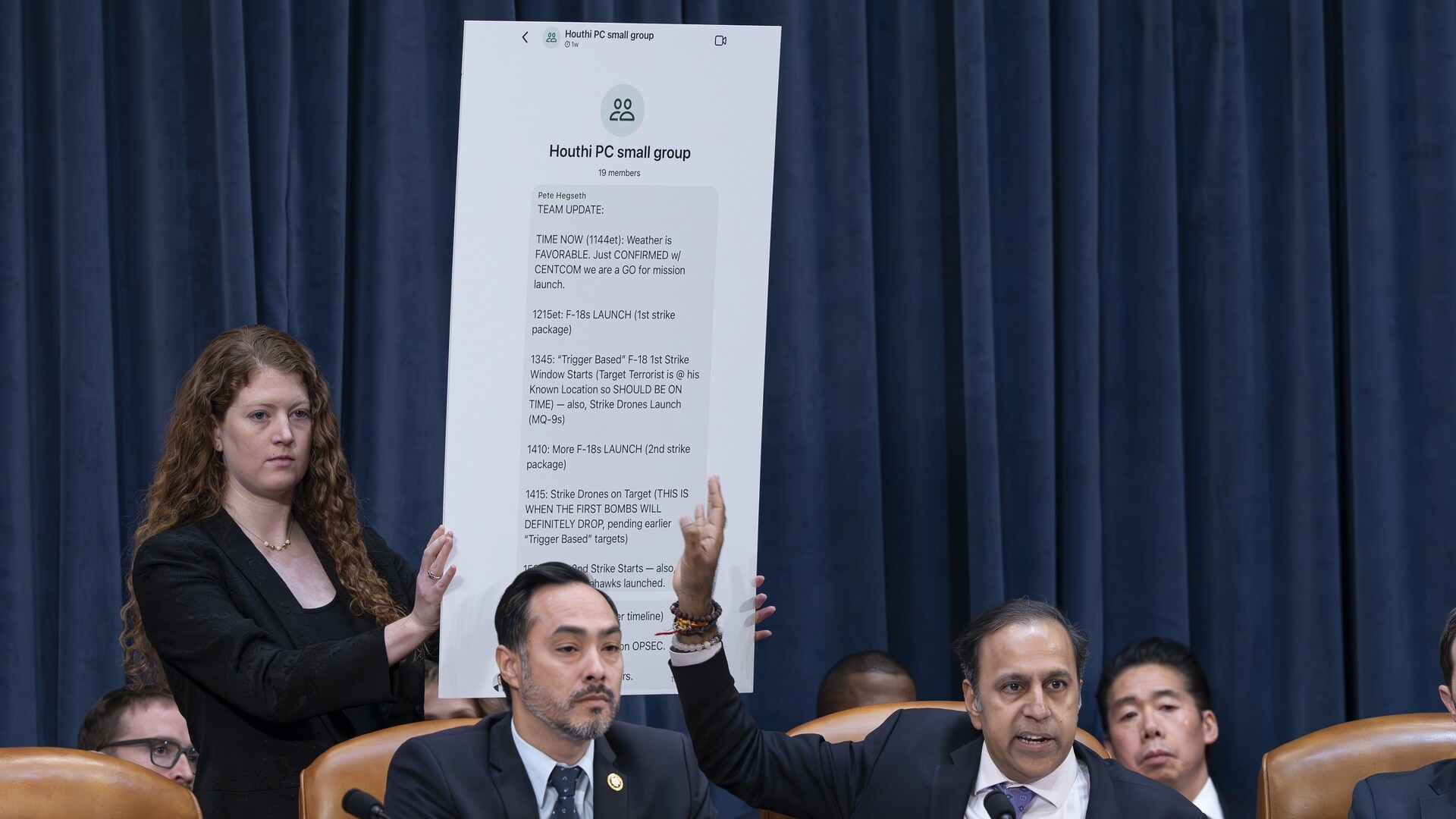
Defence Secretary Pete Hegseth has come under increasing scrutiny after more details emerged Wednesday showing he posted plans of an imminent military strike against Houthi militants, including the timing and weapon systems, on an unclassified group chat used by senior administration officials.
Several Democrats called for his resignation, saying Hegseth had flouted longstanding security procedures for handling sensitive military information. And the chairman and ranking member of the Senate Armed Services Committee called for the Pentagon inspector general to investigate the chat on an expedited basis.
“The information as published recently appears to me to be of such a sensitive nature that based on my knowledge, I would have wanted it classified,” Sen. Roger Wicker, who chairs the committee told reporters. “If mistakes were made … they should be acknowledged.” The new messages made public by the Atlantic magazine Wednesday showed Hegseth texted details to other senior administration officials about the specific times that F-18s, MQ-9 Reaper drones and Tomahawk cruise missiles would be used in the attack and mentions intelligence that an unnamed target of the strikes was at a “known location.” Such information is normally guarded carefully by the Pentagon before imminent strikes to avoid disclosures that could help adversaries.
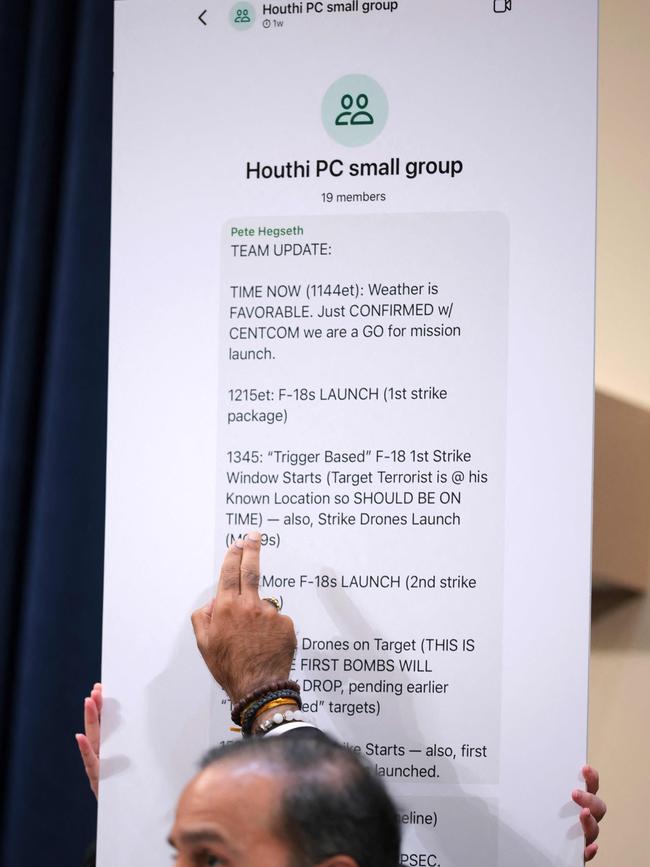
Hegseth said Wednesday in Hawaii at the start of a trip to the Pacific that the texts were routine updates to other top officials as the strike unfolded. It was the third day in a row that he had insisted he did nothing wrong. He didn’t address using Signal to send details about the attack but denied the information was classified.
There are no “war plans. There is no units, no locations, no routes, no flight paths, no sources, no methods, no classified information,” Hegseth told reporters, referring to the texts.
President Trump voiced support for the Pentagon chief in comments to reporters at the White House Wednesday. “Hegseth is doing a great job. He had nothing to do with this.” He added: “Look, it’s all a witch hunt.” The texts in the Signal chat group, which were sent over several days earlier this month, show that Hegseth was an active participant in the debate over whether to use forces against the Houthis, who began to attack international shipping after Israeli forces responded to Hamas’s October 2023 attack by intervening militarily in Gaza.
Hegseth had never held a senior national security post in the government before taking office in January. His Senate confirmation was opposed by Democrats, who said the former Army National Guard major and Fox News host lacked experience to handle one of the government’s most demanding positions.
Sen. Mark Kelly, the Arizona Democrat who flew combat missions in the 1991 Persian Gulf war as a naval aviator, said Hegseth’s inexperience accounted for his decision to convey details about an imminent military operation.
“The Signal incident is what happens when you have the most unqualified Secretary of Defense we’ve ever seen,” Kelly wrote on X on Wednesday. “We’re lucky it didn’t cost any servicemembers their lives, but for the safety of our military and our country, Secretary Hegseth needs to resign.”
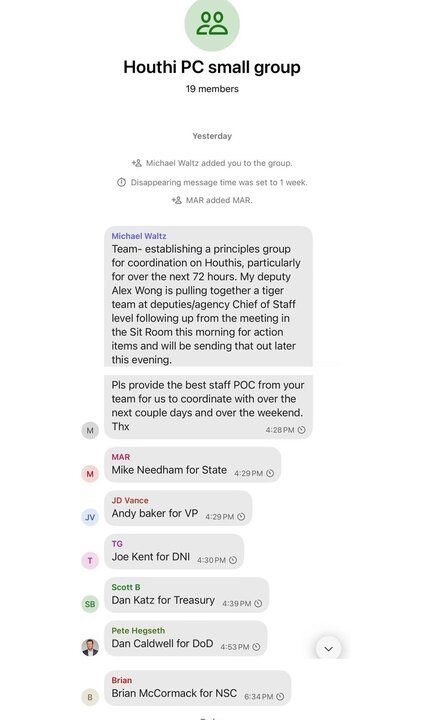
Other senior administration officials in the chat have tried to deflect the controversy by saying that they didn’t post classified information in the chat and have said Hegseth has responsibility to decide what Pentagon information should be shared in an unclassified chat.
“Was it classified the information?’ Secretary of State Marco Rubio said in remarks to reporters on a visit to Jamaica Wednesday. “Well, the Pentagon says it wasn’t.”
The Atlantic had previously released many of the texts after its editor in chief, Jeffrey Goldberg, said he was added to the chat group, apparently inadvertently, days before the initial US strikes on Yemen this month. The magazine said it withheld the most sensitive messages sent before the attack out of concern the information might have been useful to an adversary.
But it released those Wednesday after the White House insisted no classified information was included in the texts and attacked Goldberg’s credibility. They showed Hegseth posted multiple specific details of the looming attack on the unclassified Signal chat group established by national security adviser Mike Waltz.
Most Republicans, who have portrayed the text uproar as an unfortunate mistake by the administration but not one that would require criminal investigation or resignations, reacted with more concern after the latest revelations.
“They can’t fool America on this,” said Rep. Don Bacon, a military veteran and member of the House Armed Services Committee. “So if they just say, ‘I was wrong,’ and if you take accountability, then people move on. If you don’t take accountability, it is gonna stick for a while, and then people are gonna keep beating you up over it.”
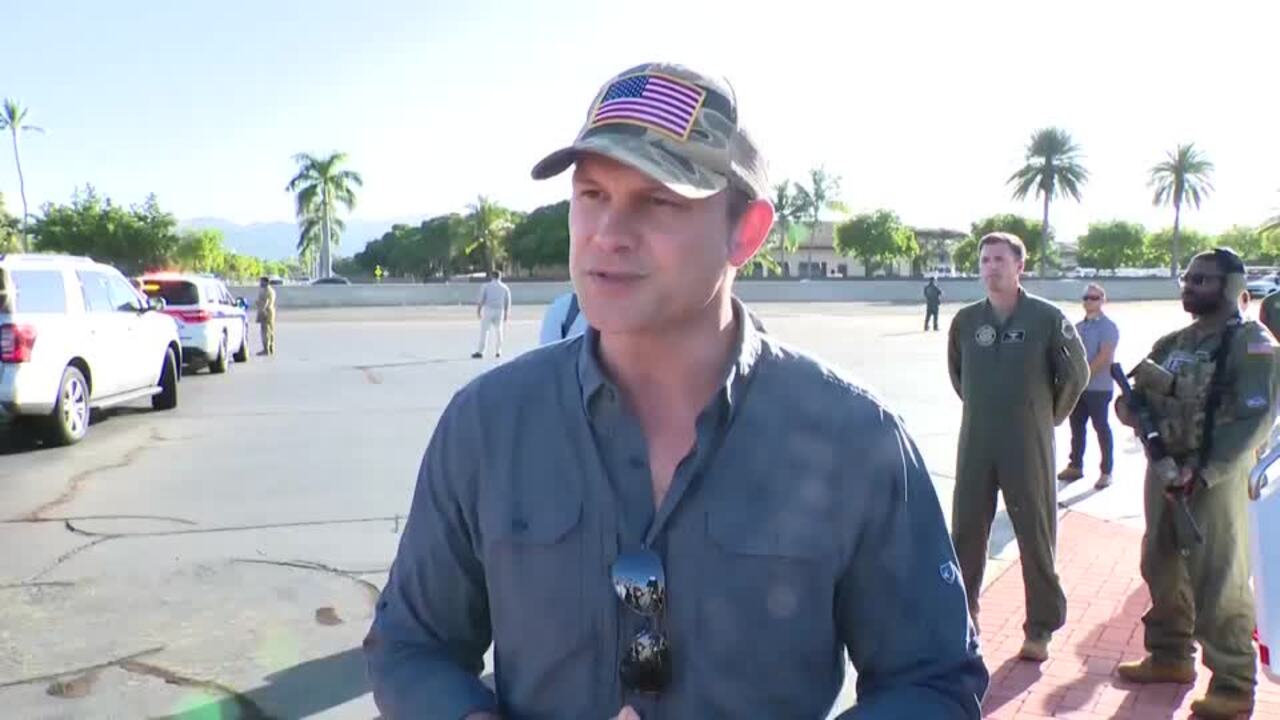
Whether the information Hegseth shared was classified at the time he texted it has emerged as a key question.
Several US military officials said the strike information Hegseth included was still classified as secret when he shared it. The officials didn’t say if any action was taken after the attack by Hegseth to formally declassify some or all of the details. Nor has Hegseth said if he has ordered such an action.
The texts disclosed Wednesday by the Atlantic include details about the specific times that F-18s, MQ-9 drones and Tomahawk cruise missiles would be used in the attack and mentions intelligence that an unnamed target of the attacks was at a “known location.” In a text entitled “Team Update” on the Signal service, Hegseth wrote that the weather was favourable for the military operation and that “we are a GO for mission launch.” The text was posted at 11.44am. E.T. on March 15, about 30 minutes before the first US F-18s warplanes that carried out the strikes took off from a US aircraft carrier.
The defence secretary added that “THE FIRST BOMBS WILL DEFINITELY DROP” at 2.15pm.
Waltz later texted that real-time US intelligence had confirmed that the first target, whom he identified as the Houthis’ “top missile guy,” had been struck.
“We had positive ID of him walking into his girlfriend’s building and it’s now collapsed,” Waltz texted, in response to a question from Vice President JD Vance.
Targeting plans and the employment of American forces have long been considered to be highly classified before action is taken because their disclosure can tip off adversaries and provide them with insights on how the US conducts sensitive military operations, former officials and national security experts say.
White House press secretary Karoline Leavitt said the texts were part of a “sensitive policy discussion,” but maintained no classified material was disclosed. Trump, she added, has “great trust” in his national security team.
Top national-security officials have access to secure communications on government networks designed for classified discussions about such information.
Tulsi Gabbard, the director of national intelligence, told lawmakers at a House Intelligence Committee meeting Wednesday that the information shared was a “standard update” that wasn’t classified and which was shared with US allies.
She was challenged by Rep. Jim Himes of Connecticut, the ranking Democrat on the panel, who said the inclusion of military attack details in a nongovernmental messaging app breached Gabbard’s own organisation’s guidelines for protecting information that provides “indication or advance warning” that the US or its allies are preparing an attack.
Earlier this month, the Pentagon sent an advisory to all military personnel warning that a “vulnerability” had been identified in Signal and warned against using it for classified information.
“It borders on incompetence,” said Chuck Hagel, the former Republican senator and defence secretary during the Obama administration, of Hegseth’s texts. “It’s certainly reckless.”
Dow Jones


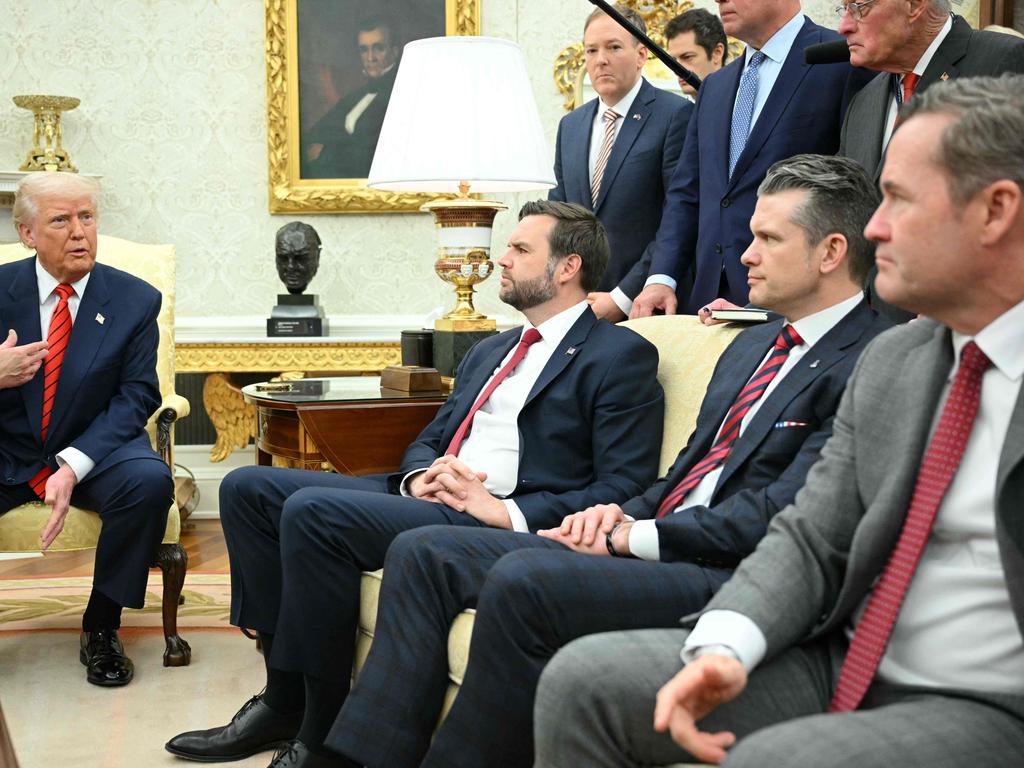


To join the conversation, please log in. Don't have an account? Register
Join the conversation, you are commenting as Logout